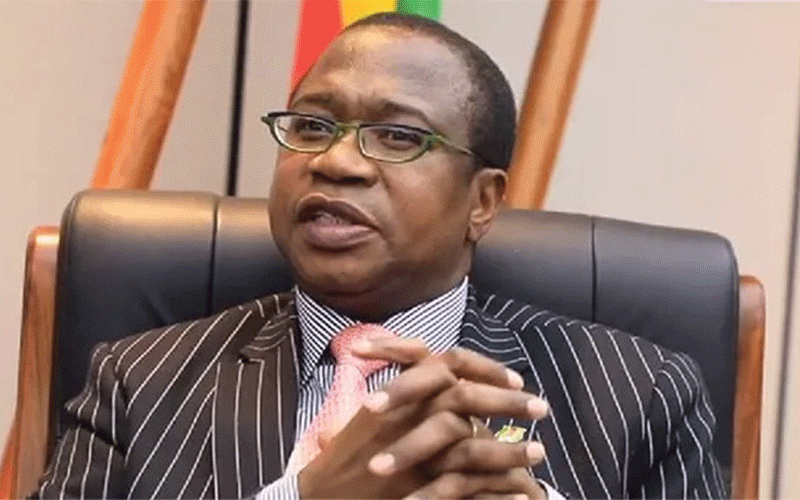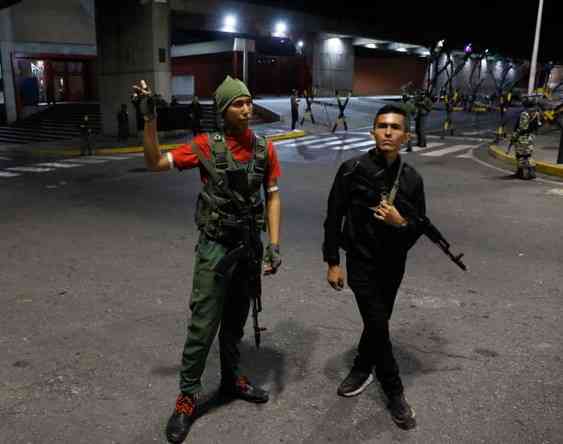
THE curtain comes down on 2022 and the new year is upon us.
Here are our newsmakers and noisemakers of the year.
Mthuli Ncube
In January this year, the economy was showing all the signs of ailing and by June, all the pointers indicated that Zimbabwe was heading into an economic quagmire.
Government was struggling to arrest the runaway inflation. Civil servants were threatening industrial action. The Zimbabwe dollar value was constantly being eroded.
Finance minister Mthuli Ncube instead claimed that government was happy with the country’s economic performance, adding that “everything was under control”.
Speaking in an off the cuff interview with NewsDay after a post-Cabinet briefing in January, Ncube said Zimbabwe was not facing an economic crisis.
“What crisis? We are performing well. We have put measures in place to fight inflation, people should not panic, everything is in order, zvinhu zvese zvakarongeka,”Ncube said.
- Young vocalist making southern Africa dance
- Backlash over ZEC’s huge 2023 poll fees
- Ex-Mwonzora ally defects to CCC
- Pomona saga: Harare handed shock US$750k ‘garbage’ bill
Keep Reading
His utterances came at a time when the country’s inflation was officially the highest in the world, with civil servants being the hardest hit.
The utterances also came at a time when government had hiked user fees at public hospitals by 1 748%, prompting analysts to warn of an upsurge in home deaths.
The Finance minister then said the country was not going to dollarise because using the United States dollar would result in unintended consequences on the economy.
“We have embraced the US dollar, but have also embraced our own currency, the Zimdollar, so there is no rejection of the US dollar, and we are using it. As a government, we are also using it to pay, and I suspect you are also using it to pay in shops, you are also charging others for goods and services.
“So, this is what will happen on day one if you adopt the US dollar as your currency, something very nasty will happen. You will wipe out the entire banking sector because you will have to convert the Zimdollar balances to US dollars, the banks will have a negative balance, you will have a crisis,” Ncube said
Throughout the year, Ncube was in the news trying to patch the economy with sometimes nocturnal inconsistent policies that he would withdraw after the market failed to respond the way he liked.
Nelson Chamisa
After losing 42 Members of Parliament and 122 councillors to recalls by his arch-rival Douglas Mwonzora, Nelson Chamisa also lost the party headquarters and political funding to Mwonzora.
At that time, most political experts had written epitaphs for Chamisa saying his political life had ended.
However, on January 24, Chamisa announced his “resurrection” with the formation of a new political outfit, Citizens Coalition for Change (CCC).
Ever since its formation, CCC has torn the traditional political rule book. The party has gone against the norm of having structures and a congress just after its formation. It has contested in elections without internal party elections and has won constituencies and local authority wards.
In the March by-elections, there were 28 vacancies in the National Assembly and 122 in local authorities.
Chamisa’s party secured 19 of the 28 contested parliamentary seats and 75 seats in 122 municipalities.
When Chamisa launched the CCC party on January 24 this year, its official name was a closely guarded secret with only a few in his circle in the know.
Before making the announcement, Chamisa revealed that the Zimbabwe Electoral Commission (Zec) had given them some trouble over their new name.
“We couldn’t come here without that response. They did not expect us to be approaching Zec as a new organisation. They kept insisting, ‘we know you as the MDC Alliance’ and we told them, ‘we are a new organisation’ and they said, ‘we want to see your constitution,” Chamisa highlighted.
“So for that reason, we are a new entity with new leadership, values, and new strategies. We are not the MDC Alliance and are not rebranding, so please dine with those you have given the name MDC,” he said.
After the CCC formation, and adoption of a pointed finger as its symbol, State media published stories saying the CCC had adopted the raised index finger symbol of the international radical terror group Islamic State (ISIS) in what observers said was a harbinger of the violence to come from the opposition party.
In response to the allegations, political analysts, however, said the pointed finger symbol had several meanings that were not related to ISIS.
During 2022, Chamisa and his party have proved to be a thorn in the flesh for government and the ruling Zanu PF party.
Moreblessing Ali
The slain CCC activist Moreblessing Ali was not well known in life, but her death continues to make headlines six months after her untimely demise. A quick Google search shows that more than 500 articles have been written on Ali since she was found murdered on May 24.
The family has refused to bury him until their lawyer Job Sikhala is released from prison. Ali was killed by suspected Zanu PF activist Pius Mukandi Jamba.
Job Sikhala
Arrested in June 2022, Sikhala has spent six months in remand prison facing a charge of inciting public violence. Sikhala was arrested on June 14 following violent skirmishes at the funeral of slain opposition CCC activist, Moreblessing Ali.
However, his arrest has been condemned by international and local organisations who view it as politically-motivated. Sikhala has been denied bail a record 10 times.
Zimbabwe Electoral Commission
The country is preparing for the 2023 elections, and the Zimbabwe Electoral Commission (Zec) was always in the news in 2022. Some of the news included that Zec was entangled in a rigging storm amid allegations that data experts, Team Pachedu, had done research and discovered that the electoral body’s servers were being hosted by Africom, a company owned by the Defence ministry.
Fernhaven Investments (Private) Limited, an investment vehicle of Zimbabwe Defence Forces, is the majority shareholder at Africom.
There has been an outcry from opposition parties after it emerged that Zanu PF had a different voters roll in colour, and with pictures from the electoral management body, an allegation Zec has dismissed.
This raised concern that a third party could be having access to the electoral body’s servers.
Although Zec denied claims that Africom, a leading converged communication service provider, was hosting its servers, it, however, failed to prove that it had an alternative host.
“Zec has no server hosted by any external organisation, including Africom,” Zec spokesperson Jasper Mangwana told NewsDay.
Team Pachedu insists there is overwhelming evidence that the Zec server is, indeed, being hosted by Africom.
Team Pachedu also alleges that the voters roll is shambolic and has names of non-existent people, and there were complaints that Zec did not do enough to ensure that people get registered to vote.
The Election Resource Centre took Zimbabwe Electoral Commission (Zec) to court after it emerged that the electoral body is charging US$187 000 for the voters roll.
The electoral body was also in the news after conducting the delimitation exercise. Some stakeholders cried foul, accusing Zec of not consulting them.
Power outages
The power crisis exposed policy inconsistencies in both government and the ruling Zanu PF party, with senior officials giving incoherent and contradictory statements on why the country is in such a mess.
Zimbabwe is experiencing some of its worst power outages, with electricity mostly available between 10pm and 4am.
Zimbabwe requires over 2 000 megawatts (MW) and is currently producing only 650MW, with experts urging government to prioritise renewable energy sources.
President Emmerson Mnangagwa blamed climate change and the “phenomenal” economic growth for the power cuts.
Energy minister Zhemu Soda then laid the blame on the country’s wheat bumper harvest for rolling power cuts.
Zanu PF spokesperson Christopher Mutsvangwa blamed the late former President Robert Mugabe for the country’s electricity crisis.
Douglas Mwonzora
After seemingly conducting a “smooth” palace coup to take over the opposition Movement for Democratic Change, Douglas Mwonzora’s political star seemed to be shining brightest.
However, the March by-elections humbled him, with his party failing to win a single ward. The aftermath of the loss saw mass defections from his party.
Mwonzora continued to hog the limelight for the wrong reasons which culminated in a sham congress this December. He has, however, remained the party president after making sure that there was no contest.











